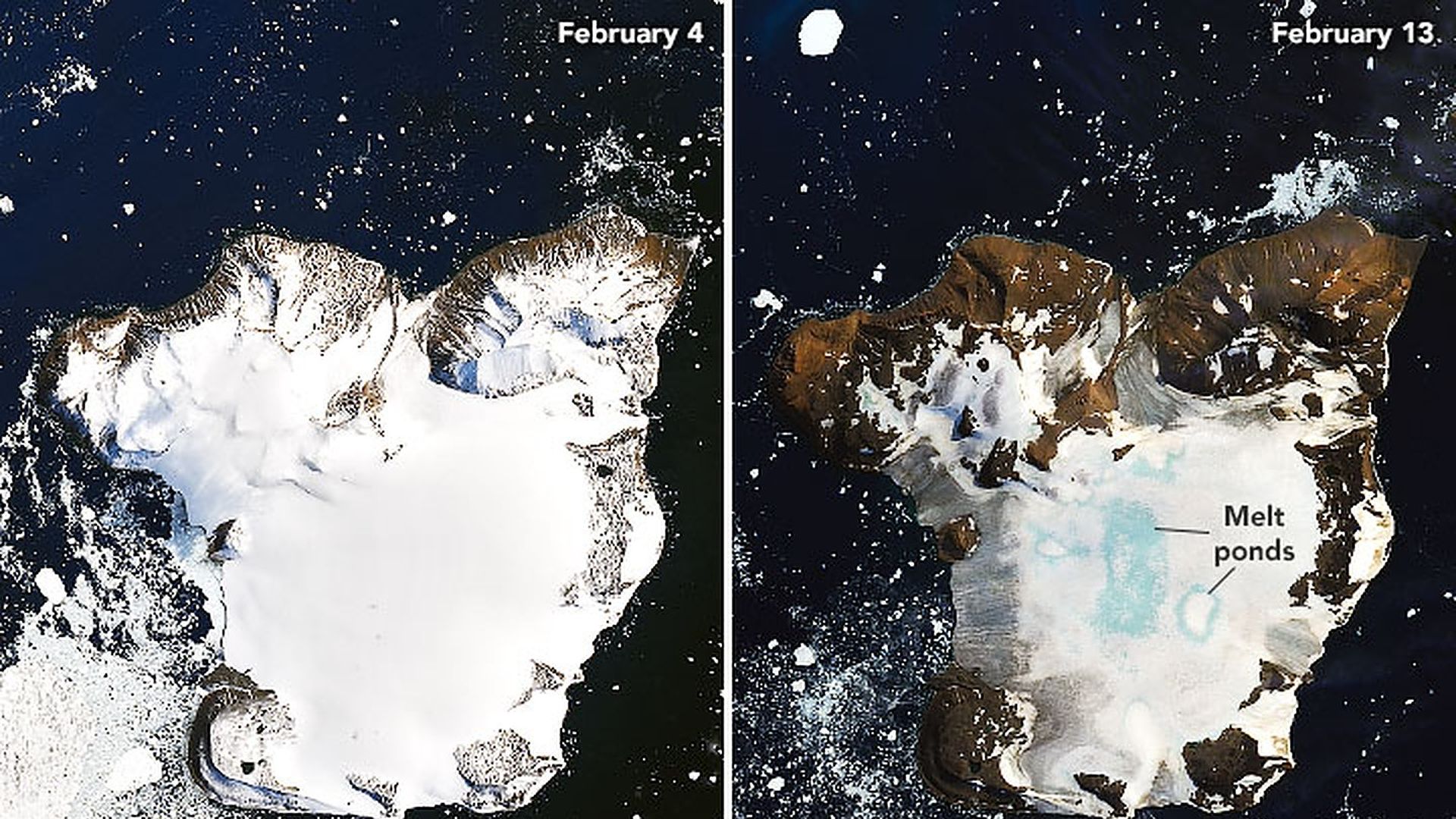
The effects of February's record heat wave on Eagle Island in Antarctica. Photo: NASA
Antarctica's Eagle Island now has a side that's almost ice-free following this month's searing heat wave in the region, images released by NASA show.
Why it maters: "The warm spell caused widespread melting on nearby glaciers," NASA said in its report. It's the third major melt event of the 2019-2020 Southern Hemisphere summer, following warm spells in January and last November, according to the United Nation's World Meteorological Organization (WMO).
Such persistent warmth was not typical in Antarctica until the 21st century, but it has become more common in recent years."— NASA statement
Driving the news: The Argentine Antarctic research base Esperanza reported a temperature of 64.9°F on Feb. 9 — indicating a "likely legitimate record," per the WMO, which is still verifying the statistics.
- The island "experienced peak melt" — about 1 inch — on the day of the reported heat record, leading to a loss of 4 inches in total within 10 days, NASA said in a statement Friday.
- "About 20% of seasonal snow accumulation in the region melted in this one event on Eagle Island," the statement added.
What they're saying: Mauri Pelto, a glaciologist at Nichols College, who observed the warming event as 0.9 square miles of snowpack became saturated with meltwater, said in NASA's report: "I haven’t seen melt ponds develop this quickly in Antarctica. You see these kinds of melt events in Alaska and Greenland, but not usually in Antarctica."
Of note: The event comes after scientists in January found for the first time warm water beneath Antarctica's "doomsday glacier," so-called because it's one of the region's fastest melting glaciers.
The bottom line: "If you think about this one event in February, it isn't that significant," Pelto said. "It's more significant that these events are coming more frequently."
Go deeper:
https://news.google.com/__i/rss/rd/articles/CBMibmh0dHBzOi8vd3d3LmF4aW9zLmNvbS9hbnRhcmN0aWNhLWVhZ2xlLWlzbGFuZC1tZWx0cy1oZWF0LW5hc2EtaW1hZ2VzLTM5MjQ0NzIyLTU5MDktNDcyMy05MjI3LTExMDA1NjlkNjZkZS5odG1s0gEA?oc=5
2020-02-23 06:14:19Z
52780624714204
Tidak ada komentar:
Posting Komentar